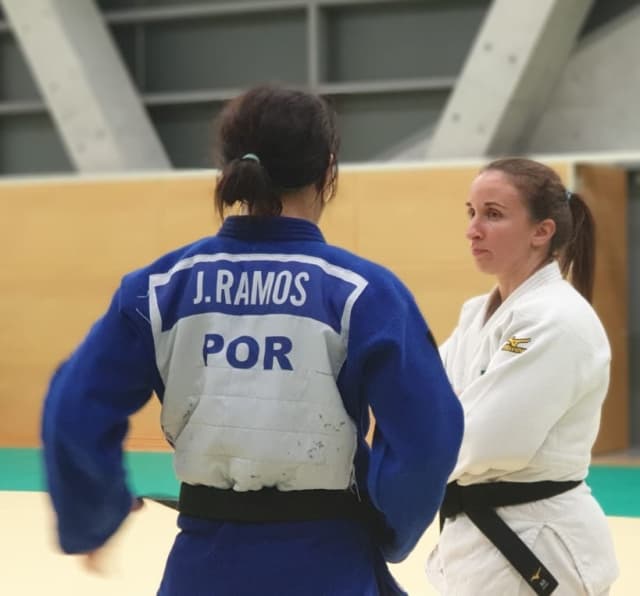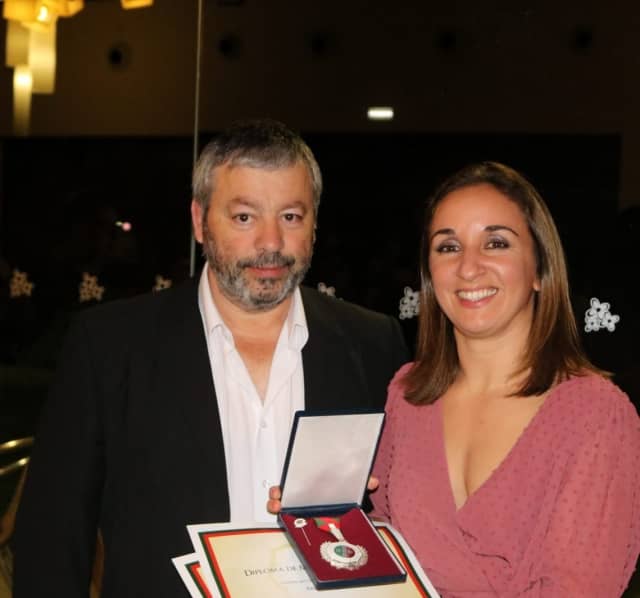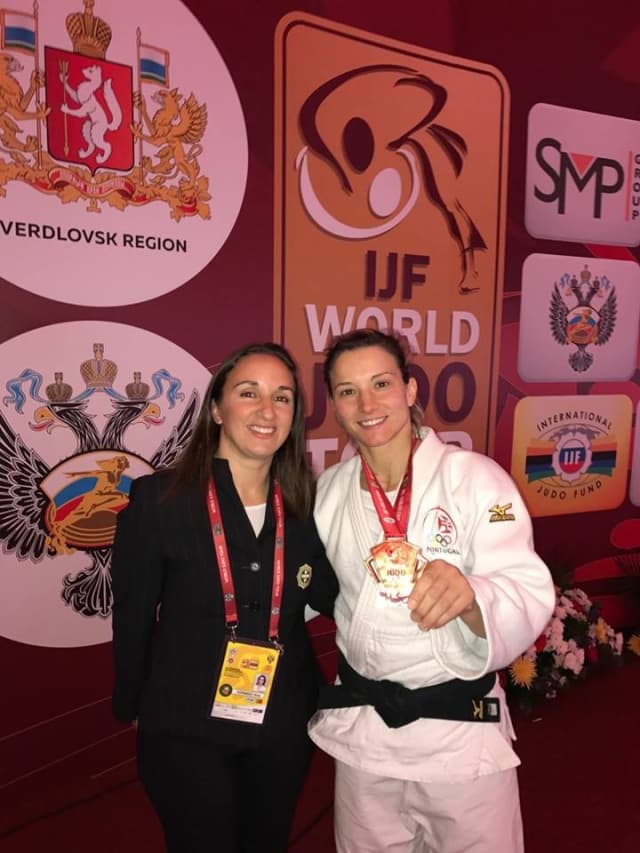How was nutrition managed during this time? How did it change?
At the beginning of the lockdown it was not easy because if we spend more time at home we have more time to eat. I told athletes to control their weight, but when the IOC decided to postpone the Olympic Games it was important to motivate them to keep focused and to keep a healthy routine. I myself also had to create a new daily routine, since I usually skipped meals and I didn’t have time to cook. Therefore, during lockdown I tried to cook more often and spend time with family.
How important is the psychological aspect for keeping judoka focussed in such a difficult period?
Mental health and physical health are both important and very closely connected. Athletes often asked about the situation with competitions and training. I didn’t have all the answers and I understood some of them were getting anxious and stressed. For that reason, it was important to keep contact with them, to explain to them that we were all facing doubts. At the beginning of June, we planned a different training camp with outdoor activities, for the Olympic Team. The main goal was to bring the team together again after 3 months of lockdown and to provide teambuilding activities. They had the opportunity to spend time together and they worked for the same goals and understood that the Olympic dream was still alive. After those days the team became physically and psychologically stronger.
What did you tell them to encourage training and not lose hope?
The strong effort by the IJF, trying to restart the World Judo Tour in September, gave us some hope and motivation. Some sports have just cancelled competitions until the end of the year and that created more anxiety for athletes. The Portuguese Judo Federation also rescheduled our national calendar and now Portuguese athletes are focused on the National Championships to be held next September. It is time to achieve a great level of physical condition, focussing on training rather than competition.
How about you? What did you tell yourself?
We all faced a new and uncertain situation, but I always tried to focus on positive things. First, I told myself that it could not last forever and it was better to stay at home, following government recommendations and try to focus on things I could control. Be positive, rest and spend time with family!
Are you staying together to train continuously?
Our national training was cancelled in March. Since then we had no permission to train in Lisbon because the facilities were closed and turned into a field hospital. Since 24th June we have been training in Coimbra. Every week medical staff test our team for Covid-19. We restarted judo training in small groups and now we have almost 20 athletes in each group (men and women). Our Federation is trying hard to maintain the team working together and we have already scheduled training camps in Coimbra until the end of August.
Personally how do you handle your time now? Is it different? Time at home versus time at work?
I always travelled a lot for competitions and training camps and suddenly I was at home just waiting for better days. I was able to do things that I usually could not do. During quarantine, I could study with my son, play a lot with my daughter, read many books and finally finish my Master Degree.
What is your personal feeling/thought about the global situation and how do you see the future of judo?
We must be patient and we should be responsible for our actions. Right now, we all have a civic duty and should have a spirit of solidarity. If things do not get better, we cannot have our life and routines back. We need a global effort. Judo teaches us how to overcome obstacles and face difficulties and it is time to face a new challenge.
Have you modified the specific judo techniques used in training for the team at this time?
Four weeks ago, we started our national training, so we are gradually back to normal trainings.
What training equipment do you like judoka to use when training alone/in isolation? (Such as Uchi-Komi bands, kettlebells, rowing machine, Bulgarian bag, wobble board, Swiss ball or many others)
When training alone they used different equipment. Some athletes were living together during quarantine. Some athletes had tatamis and/or gym equipment. We tried to understand what kind of equipment they needed and we provided some materials like nagekomi mats and throwing dummies.
Do you think there are some positives to take from this challenging global situation? Which positives apply to you, your life or your work?
Like I said before, I always try to focus on positive things and try to find solutions instead of focussing on problems. The most positive thing I can get from this situation is the fact that I spent more time with my family. I also told athletes to enjoy spending time with family and to try to recover from injuries. Before Covid-19, they used to ask me, “when do we get vacations?” Now they just want to come back to normal life, to competitions and training camps.
Which judoka really impresses you at the moment and why?
All athletes are trying their best to deal with this pandemic. Everyone impressed me during quarantine, however, Telma Monteiro was the athlete that impressed me the most, managing this crisis with a lot of control. Definitely, she is the athlete that stands out with her resilience.
If you found Aladdins lamp and were granted 3 wishes, what would you wish for?
1 – Health, because it’s the most important thing in life 2- An end to this Virus 3- And a couple of wishes more…



